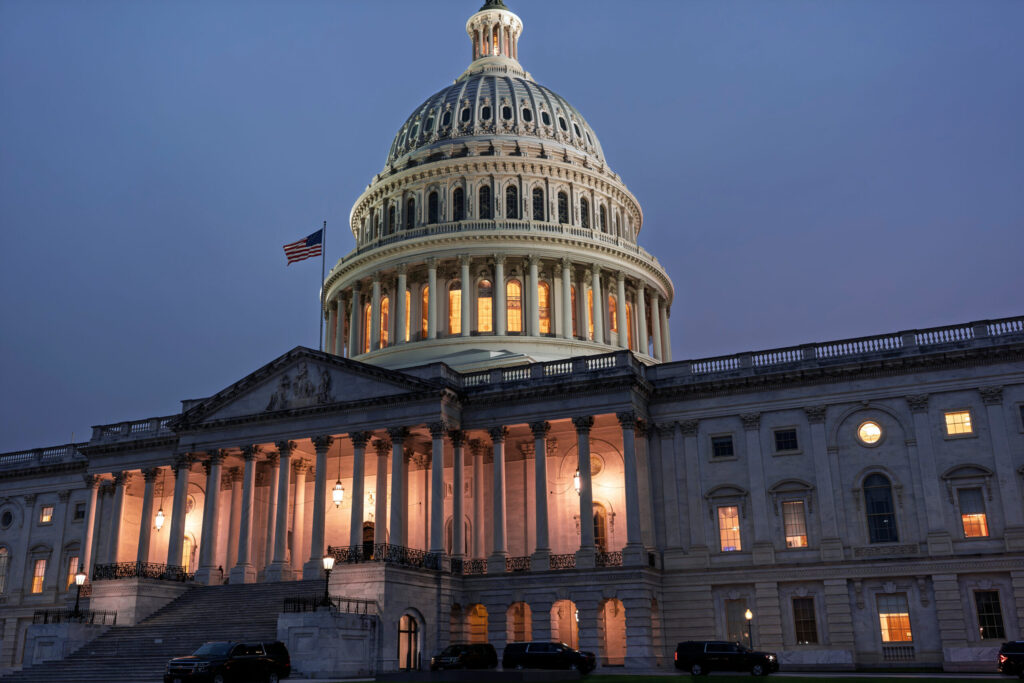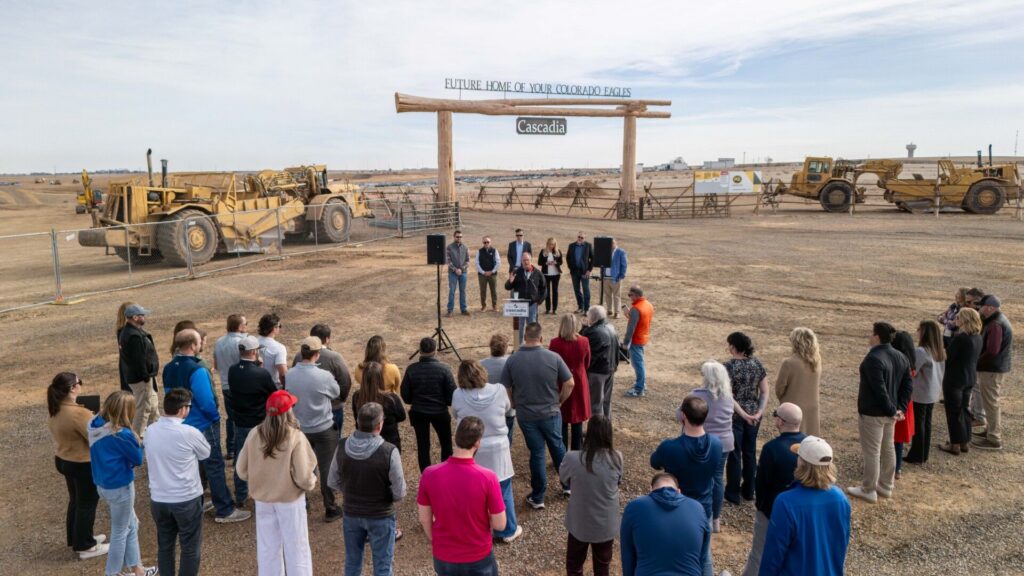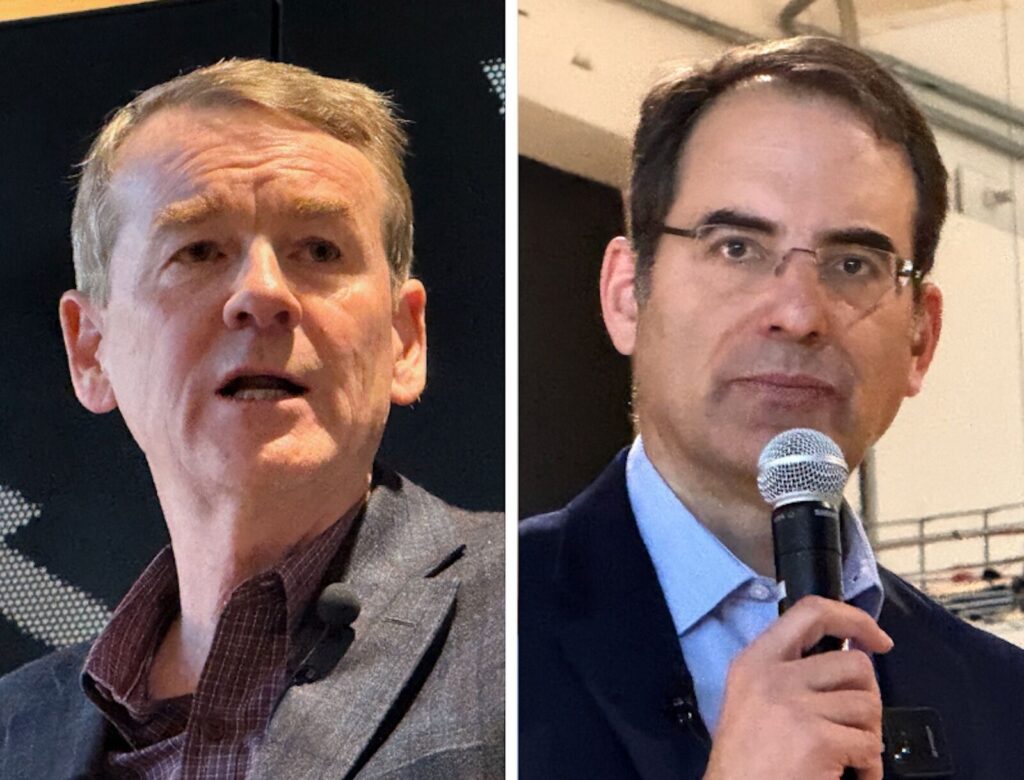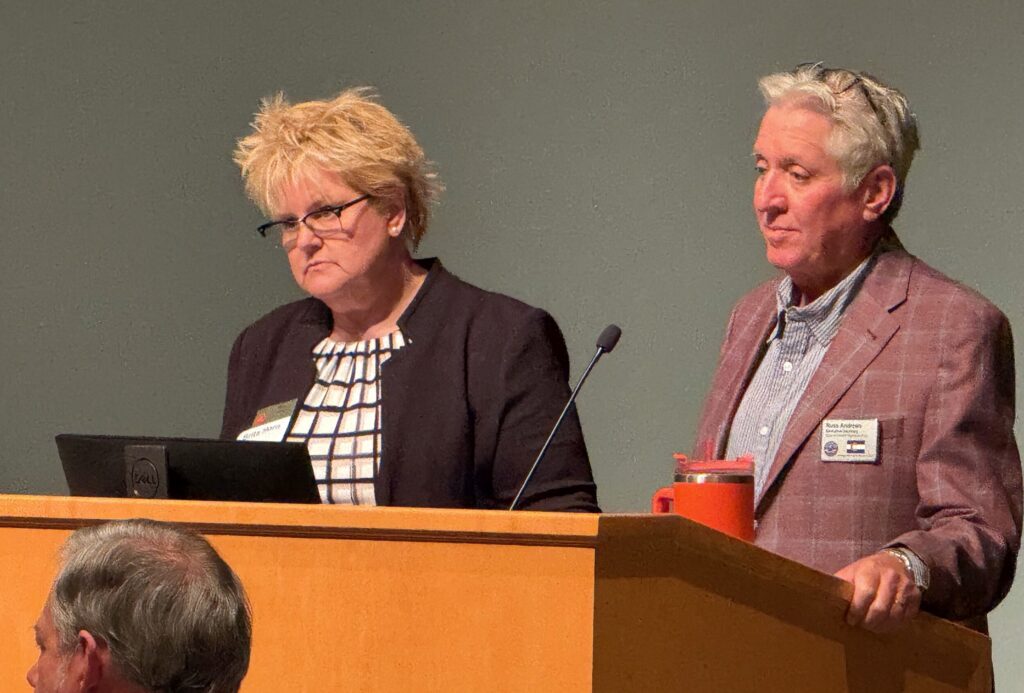YESTERYEAR: Political espionage, international terror network conspiracies make top headlines
… Thirty Years Ago This Week in The Colorado Statesman … Daniel Schorr, a nationally known CBS and cable newsman, spoke to several hundred attendees on March 27 at the B.H.M. Synagogue in Denver during a speech entitled “A Jew In Journalism.”
During the talk, Schorr honed in on the timely news of Jonathan Pollard and the surrounding controversy regarding his alleged leaking of state secrets. Pollard “is what you get when you go off the rails,” Schorr said.
Pollard was an American Jew and intelligence analyst for the U.S. Navy who was found guilty of violations of the Espionage Act by spying on the United States for Israel. He was convicted of giving American Naval secrets to Israel because, as he put it, he felt an overriding loyalty to the small, beleaguered country, cornered on three sides by hostile Arab nations. But the fault was not purely Pollard’s, but should be shared with Ariel Sharon, former Israeli defense minister, Schorr contended, drawing some surprised looks from the crowd.
Schorr blamed Sharon’s nervous, political motivation for the espionage Pollard was convicted of. “Pollard went to New York’s Israeli Embassy once a week and turned over incalculable secret documents to the Israelis for photocopying,” Schorr said.
In his capacity as a journalist, Schorr had reported on the story. He told the audience, “I don’t keep a lot of secrets. I am a window through which light passes. I don’t suppress national security stories because most are hog wash. [Ronald] Reagan talks about leaks and he’s the biggest leaker himself.”
In other news, Front Range residents faced radon gas danger from the granite and rocky soils of the Rocky Mountains, according to reports. The toxic substance seeped into metropolitan homes in the foothills of West Denver, where there is more granite in the soil.
“Concentrations are also higher in basements with crawl spaces, where enclosed soil is exposed to trapped indoor air,” Milt Lammering, chief of radiation programs for the Environmental Protection Agency, said.
Radon gas caused up to 20,000 Americans to die from lung cancer annually, and 10 percent of Front Range residences had been found to have high levels of the gas, a subject that terrorized many a homemaker across the metro region.
Contaminated private wells in the area also showed radon in the water. Water from public suppliers was usually surface water, which had a far lower potential for radon.
The EPA and the Tri-County Health Department sponsored a radon conference April 10 at the Colorado Environmental Health Association offices in Denver.
… Twenty Years Ago … Stephen Jones, attorney for Timothy McVeigh, filed a 150-page motion to delay the Oklahoma City Bombing trial in Denver. He blamed the prosecution for refusing to provide evidence to support a global terrorist conspiracy. Jones cited a network of Middle East terrorists, European neo-Nazis and American militias with a racist bent.
A lifelong Republican, Jones had ran unsuccessfully for four public offices, including an Oklahoma U.S. Senate seat in 1990. Jones worked in a number of high-profile offices including; Richard M. Nixon’s New York Law Firm, Oklahoma Gov. Dewey Bartlett’soffice and for U.S. Rep. Paul Findley, R-Illois. In 1970 he left Findley’s staff in Washington and began practicing law in Enid, Oklahoma. He was one of the few lawyers in the state who would process cases there for the American Civil Liberties Union.
Jones announced the Oklahoma City bombing trial’s change of venue from Oklahoma City to Denver in a full-page ad in Enid in December 1996. He incorporated text from Abraham Lincoln’s farewell address from 1861. Jones forgot to credit Lincoln and ended up having to tell a Daily Oklahoman newspaper reporter in an interview that he was “not a candidate for president.”
In February 1996, The Colorado Statesman reported that Jones dispatched defense investigators to Germany, and he and his wife visited London where he employed the services of an expensive law firm and more investigators. By 1997 the conspiracy pursuit, which had turned up no evidence to support the claims, had cost $10 million.
Jones aimed to portray McVeigh as a Boy Scout who was manipulated by terrorists, and the government as inept for bungling the bombing investigation and tainting the evidence at the FBI crime lab.
Though the prosecution maintained they had solid evidence to convict McVeigh and co-defendant Nichols, evidence did support botched lab work. FBI agents altered earlier testimony and witnesses were dropped who supported theories that the bomb was built beside a Kansas lake. Jones coined the campaign for justice as “David versus Goliath.”
But the conspiracy theories were all dead ends. It was all part of the campaign spin, explained Richard Sherrow, former ATF agent who worked closely with the McVeigh defense team. “The conspiracy stories serve to confuse the public and plant seeds of doubt in the prosecution’s case,” Sherrow said. “It’s a preview of the defense strategy: confuse the jury.”
Despite being ill, Gov. Bill Ritter cracked jokes at an outdoor ceremony for two landmark pieces of renewable energy legislation.
Ritter, who was suffering from a cold, grinned at the overcast sky and said, “We’re the sixth sunniest state, believe it or not, and the 11th windiest state, believe it or not.”
He then told a crowd of state legislators, scientists, utility executives and environmental activists at the National Wind Technology Center in Boulder that the pair of bills would boost Colorado’s economy by $1.9 billion over the next two decades and spawn hundreds of new jobs.
House Bill 07-1281 required large utility companies, like Xcel, to get a minimum of 20 percent of their retail electricity from renewable sources by 2020. Senate Bill 07-100, a companion piece, made it easier for those same utilities to recoup the costs of building necessary transmission lines for electricity generated by sources such as wind turbines.
“Right now we are stuck in this chicken-or-egg cycle. Utilities say they won’t build transmission lines until there are enough turbines in the area, and wind companies won’t build turbines unless there are transmission lines,” Ritter explained.
SB 07-100, sponsored by Senate President Joan Fitz-Gerald, D-Coal Creek Canyon, and Rep. Buffie McFayden, D-Pueblo, was crafted to solve that problem by providing incentives for utility companies.
Ritter also predicted that Colorado would become a beacon for the renewable energy industry, and said, “Signing those two bills today says to the rest of the country, we’re open for business in what will be one of the most important industries of the 21st century.”
The governor then noted a recent announcement that Denmark-based company, Vestas Americas, had decided to base its first U.S. plant in Weld County. The turbine blade factory, estimated to cost $60 million, was expected to create a minimum of 464 jobs. Ritter said that HB 1281 had played a large part in their decision to build in Colorado, and that Vestas would be just the first of many companies that would be packing their bags and moving to Colorado thanks to the renewable-energy-friendly legislation.
The opening of the Vestas plant, he said, would create a domino effect which would bring more and more companies and jobs to Colorado. “They said to all their suppliers, you need to move too,” Ritter said, “That’s how the vertical part of this industry works.”











